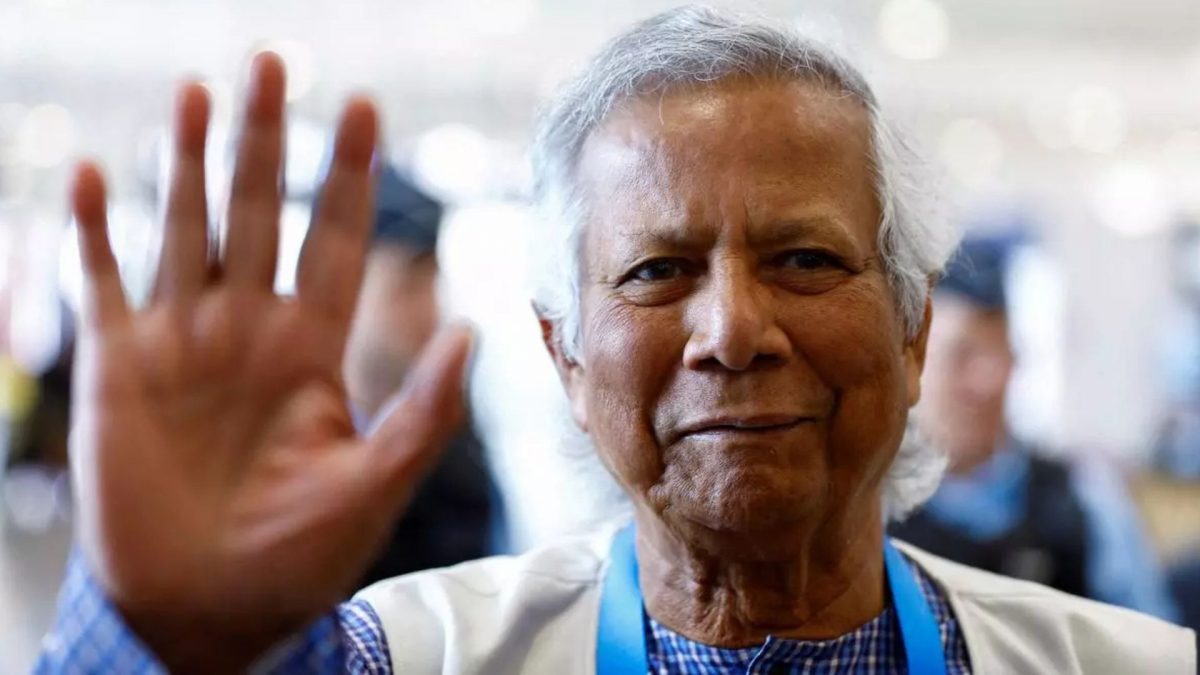An interim government led by Nobel laureate Muhammad Yunus was formed in Bangladesh on August 8 within three days of Awami League leader Sheikh Hasina being deposed and fleeing the country.
Yunus was tasked with holding the parliamentary polls. Article 123 (3) of Bangladesh’s Constitution says a fresh general election to elect the new government must be held within 90 days of dissolution of parliament. However, this has not happened.
Yunus, on November 17, completed 100 days of governance. Addressing the nation on the occasion, he spoke about the “desired” national election, but did not provide any specific timeline.
The Bangladesh parliament was dissolved on August 6, a day after Hasina left the nation. As per the constitutional mandate, a fresh election should have been held latest by mid-November.
Yunus urges more ‘patience’
On the completion of 100 days in office, Yunus appealed for the nation’s “patience”, pledging that general elections would be conducted after electoral and institutional reforms were completed.
“I promise that we will hold the much-anticipated election once the necessary and essential reforms are complete,” he said.
“Within a few days, the Election Commission will be formed, after which the responsibility for organising the elections will rest with them,” Yunus claimed.
Also Read: Attacks on Hindus in Bangladesh 'baseless propaganda originating from India', says Yunus | WATCH
Yunus, in his address, vowed that an election commission would be formed “within a few days”.
“I request your patience until then. We aim to build an electoral system that will endure for decades. For this, we need some time," he said, but did not provide any specific timeline for the elections in Bangladesh.
Reasons for delay in holding election
Yunus hinted that the journey of Bangladesh’s “election train” has already begun. “Some reforms can be made during the preparations for the elections, and for this reason, the polls may be delayed by a few months,” he said.
Bangladesh’s interim leader further said that the election might be delayed by a few more months to accommodate necessary electoral reforms.
He also blamed the leaders of the deposed Awami League government for actively seeking to destabilise the administration and trying to return to power with their “ill-gotten wealth”.
But BNP presses for polls
Amid this, the Bangladesh Nationalist Party (BNP), a key political group led by former prime minister Khaleda Zia, has been pressuring the Yunus-led interim government to hold national elections within a “reasonable time” and calling for dialogue between the political parties for the same.
The BNP does not want the Yunus-led interim government to repeat what happened in the past. An army-controlled caretaker government in 2006 stayed beyond its mandated three months and delayed the voting by about two years. When elections happened, Hasina stormed back to power.
Earlier, the BNP leaders said that the interim government should move forward to hold the election, instead of staying in power for long, but the party is willing to give the government a reasonable amount of time to bring some reforms.
Also Read: Bangladesh will seek ex-premier Sheikh Hasina’s extradition from India, says Yunus
However, in September, activists and leaders of BNP carried out protests demanding a fresh election as no timeline was provided by the interim government for the polling.
Again in the start of the second week of November, BNP carried out protests in capital Dhaka, calling for a new election and speedy reforms.
They have also indicated that BNP would go ahead with plans for street protests in two to three months if the interim government doesn’t roll out a road map for the next election.
Bangladesh elections in 2026?
Yunus has been persistent in saying that general elections cannot be conducted in Bangladesh before reforms are completed. The Hindu quoted sources as saying that a realistic timeframe for these reforms to be completed may possibly take at least until the end of next year (2025), and elections are therefore likely in early 2026. This would extend the election-break in Bangladesh closer to the one supervised by the military government — something that wouldn’t please the BNP.
Yunus has been saying that the aim of the caretaker government led by him is to create an inclusive and pluralistic democracy and to create an environment where a free, fair, and participatory election can be held.
With inputs from agencies.


)

)
)
)
)
)
)
)
)



